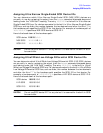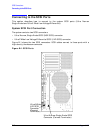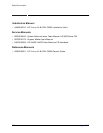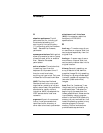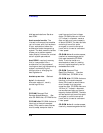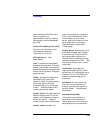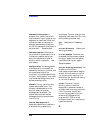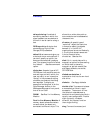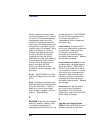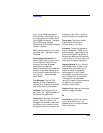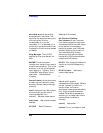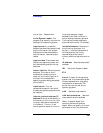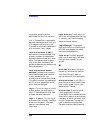
Glossary
219
uses removable CD-ROM disks.
The drive contains a
semiconductor laser for reading
data optically and an embedded
controller.
Central Processing Unit (CPU)
The part of a workstation that
interprets and executes
instructions; the “brain.”
child directory See
subdirectory.
click To press and immediately
release a mouse button. The term
comes from the fact that pressing
and releasing most mouse buttons
makes a clicking sound. Compare
drag and drop.
cluster A group of workstations
connected via a Local Area
Network (LAN). One workstation,
the cluster server, acts as a
file-system server for the cluster
clients. See also cluster client,
cluster node, cluster server.
cluster client. A cluster node that
does not have a local HP-UX file
system. Its file system resides on
the cluster server. See also
cluster, cluster node, cluster server.
cluster node A member of a
group of workstations connected
via a Local Area Network (LAN).
One workstation, the cluster
server, acts as a file server to the
other machines in the cluster.
See also cluster, cluster client,
cluster server.
cluster server A workstation that
provides file access, login access,
file transfer, printing, and other
services across a network to a
defined cluster of systems (cluster
nodes) connected via a LAN. See
also cluster, cluster client, cluster
node, host.
cold install. A process that
requires the booting of an install
kernel from an install server over a
network or from a CD-ROM and
answering some configuration
questions.
command. An instruction that
you enter into the system at a
prompt, to execute a program or
perform a task. See also shell
command.
command argument
Information you provide on a
command line to describe the
object (often a file or directory) to
be operated on by the command.



